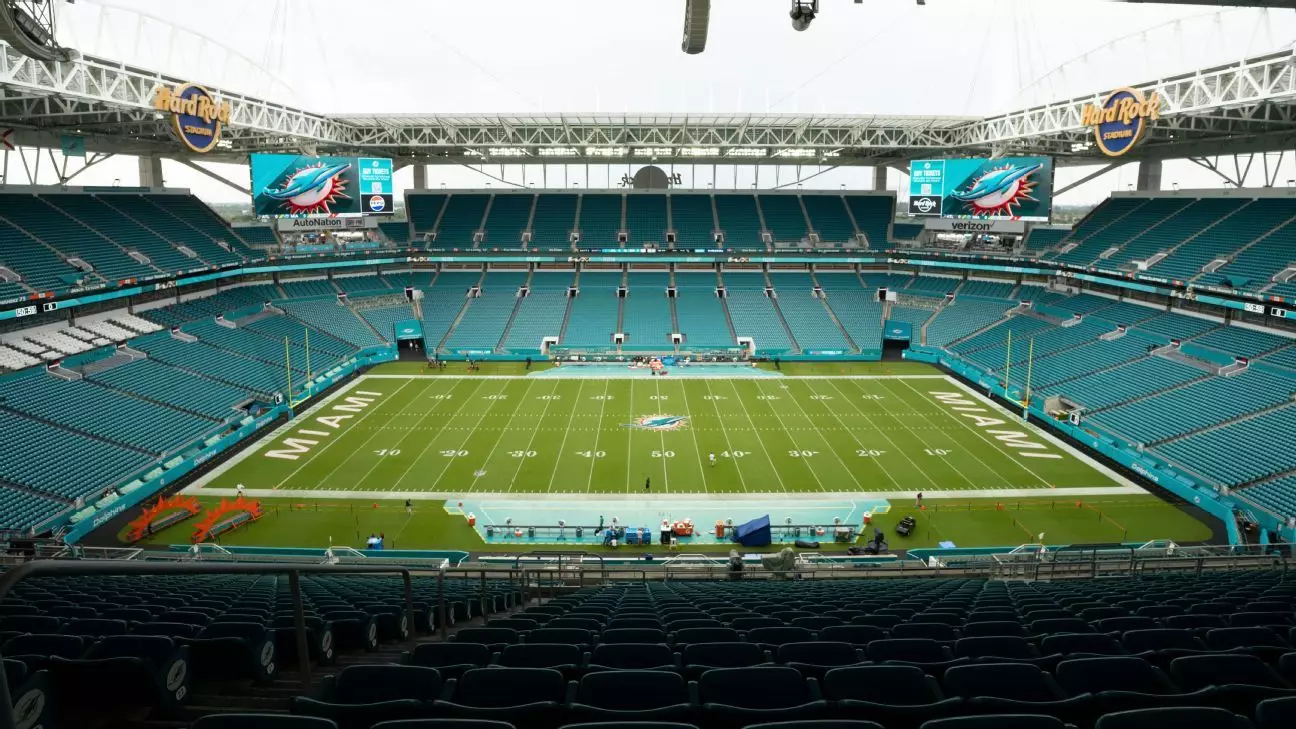Javier Tebas, the president of LaLiga, is pursuing an intriguing strategy: taking the competitive spirit of Spanish football to the shores of Miami. His ambition to host a league match in the United States represents not just a bold logistical challenge, but also a significant cultural and commercial endeavor aimed at expanding LaLiga’s global footprint. Tebas’s vision hinges on negotiations with the Spanish Football Federation (RFEF), a body currently facing internal turmoil due to a leadership vacuum following the resignation of its president. This uncertainty raises critical questions about the feasibility and timing of such international games.
Tebas’s previous attempt to organize a match—specifically between Barcelona and Girona at the Hard Rock Stadium in 2018—was thwarted due to strong objections from both the RFEF and FIFA. The prevailing sentiment among these governing bodies was a reluctance to permit official, competitive matches that could disrupt the traditional framework of European football. However, the landscape appears to be shifting. The recent developments involving Relevent Sports Group, the entity pushing for LaLiga matches in the U.S., may pave the way for a breakthrough in negotiations.
The legal wrangling between Relevent Sports and FIFA has undergone significant transformation since it began. In 2019, a lawsuit was initiated after FIFA barred Relevent’s efforts to orchestrate the aforementioned match. Compounding these challenges was the refusal of the U.S. Soccer Federation (USSF) to sanction a match between Ecuadorian teams, adhering to FIFA’s territorial restrictions. Yet, a resolution earlier this year, which saw Relevent and FIFA part ways in terms of the lawsuit, raises hopes that future blockades can be dismantled, allowing LaLiga matches to flourish in new territories.
Tebas recently announced that a match in Miami remains a possibility, contingent upon reaching a satisfactory agreement with the RFEF. He stated, “We will see if it can be done next season,” emphasizing the unpredictability that currently clouds the path forward. This uncertainty can be attributed not only to bureaucratic obstacles but also to the broader implications of scheduling competitive matches far removed from the Spanish footballing landscape.
As discussions about expanding LaLiga’s reach unfold, they coincide with growing unrest among players over fixture congestion. Concerns have escalated to the point where Spain’s Rodri, a midfielder for Manchester City, indicated that players are contemplating a strike. This consideration is rooted in the burdens imposed by an increasingly packed soccer calendar, worsened by the anticipation of tournaments like the extended Club World Cup set to be hosted in the United States next summer.
David Aganzo, president of the Spanish Players’ Union (AFE), has rallied behind the players’ sentiments, indicating that if relief doesn’t come soon, actions may be taken. Tebas himself acknowledges the validity of these concerns, explicitly stating that the fears surrounding player welfare and match overload are “justified.” This is a dual reality for Tebas—advocating for a marquee game in Miami while acknowledging the legitimate concerns of the players who ultimately bear the brunt of the scheduling stresses.
The call for LaLiga matches in the United States reveals an underlying tension within the sport. On one hand, it showcases the commercial ambition to introduce Spanish football to a larger audience, tapping into the lucrative North American market. On the other, it brings to light the need to balance such ambitions with the realities faced by players and clubs.
Despite criticism from the players’ union regarding Tebas’s desire to proceed with a game in the U.S. while voicing concerns about the Club World Cup, he defends his stance. He asserts that advocating for a match abroad does not negate his awareness of player welfare. This dichotomy presents a complex narrative for Tebas, who must navigate both ambition and empathy in an ever-evolving landscape of international football.
The prospect of LaLiga establishing its footprint in Miami symbolizes a transformative moment for the league. It presents opportunities for growth and global engagement but also reflects the challenges inherent in modern football. As discussions continue, the future remains optimistic yet uncertain, capturing the essence of the beautiful game.

